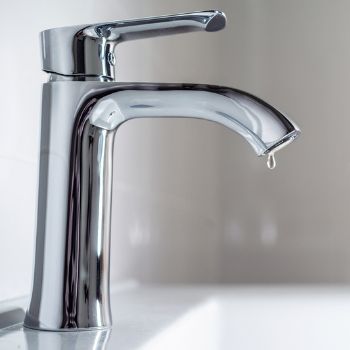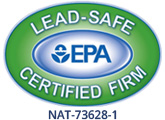Common Causes of Low Water Pressure
 The sinks and showers in your home may work fine but when the water flows, it comes out slowly or in a thin stream. Initially, this might seem like an inconvenience but can affect how well your dishes and clothes are washed, or how the toilet flushes.
The sinks and showers in your home may work fine but when the water flows, it comes out slowly or in a thin stream. Initially, this might seem like an inconvenience but can affect how well your dishes and clothes are washed, or how the toilet flushes.
Ideally, your home’s water pressure should be around 40 to 50 pounds per square inch (PSI). If you suspect your home has low water pressure, understand its potential causes.
Supplier Issues
In most cases, the water flowing to your home comes from a municipal provider or supplier. Before it enters your home, water travels from a natural source to a treatment facility and eventually to a large-scale pressure tank.
In more rural areas, your water may come from a well with a tank that helps it reach a certain level of pressure for faucets and appliances.
Considering this relationship, low water pressure might be the result of another source. To determine if you’re dealing with this issue:
- Ask your neighbors if they are experiencing similar problems with water pressure.
- Contact your region’s water supplier to see if they are experiencing any issues and when they will be resolved.
- Find out if your town, city or region recently updated its standards for water pressure or distribution.
You may need to wait until the issue is resolved or install a water pressure booster for your plumbing.
Valve Issues
Your home’s water system includes two valves, which may be experiencing one of these issues:
- The main shutoff valve isn’t fully open: This controls how water flows into your home; being partially open impacts the water pressure. Check this valve, located where the main supply pipe passes into your home, to make sure it’s opened all the way.
- The water meter valve isn’t fully open: Owned by your region’s supplier, the water meter valve controls your home’s water intake and is typically located underground. A partially closed water meter valve affects your home’s water pressure. You may need to contact your region’s supplier to inspect this part.
- The pressure regulator is experiencing issues: Not all homes include a pressure regulator but this part of the plumbing system helps maintain the water pressure, ideally keeping it between 45 and 60 PSI. You’re advised to test its performance with a pressure gauge from an outside hose spigot, then adjust the part yourself or call a plumber.
Pipe Issues
Clogs and other pipe issues can also influence how water flows from the faucet. Low water pressure may be a result of the following:
- Clogged Pipe: From sand to dirt and grease, various particles and mineral buildup can clog your home’s pipes. This creates a narrow opening for water to pass through, affecting the pressure.
- Corrosion: Especially if your home has older galvanized steel pipes, corrosion can cause oxidized metal to accumulate within the pipe. This development also narrows the path for water to pass through and can often affect larger segments of pipe.
- Leaking Pipe: Low water pressure, especially in conjunction with a damp basement or cracked foundation, can be a sign water is being diverted away from faucets and appliances through a leak.
- Shared Pipeline: Certain communities were built with multiple homes sharing one pipeline. As a result, a neighbor running a dishwasher or washing machine consumes the water available, causing your home to temporarily experience low pressure.
Issues with Fixtures
Whether a faucet, showerhead or dishwasher, the fixture itself might be the culprit. Dirt, sediment and limestone can accumulate in the aerator and other parts, preventing water flow at the desired pace and influencing its quality. Especially if you notice a lack of pressure in just one or two spots, the fixture may be the problem.
Pressure issues can affect every appliance and fixture that uses water, including:
- Sinks
- Toilets
- Showers and bathtubs
- Dishwashers
- Washing machines
- Outdoor spigots and hoses
- Water heaters
Are you concerned about low water pressure in your home? Have our plumbers investigate the cause! Contact MJ Fahy & Sons to schedule service today.




